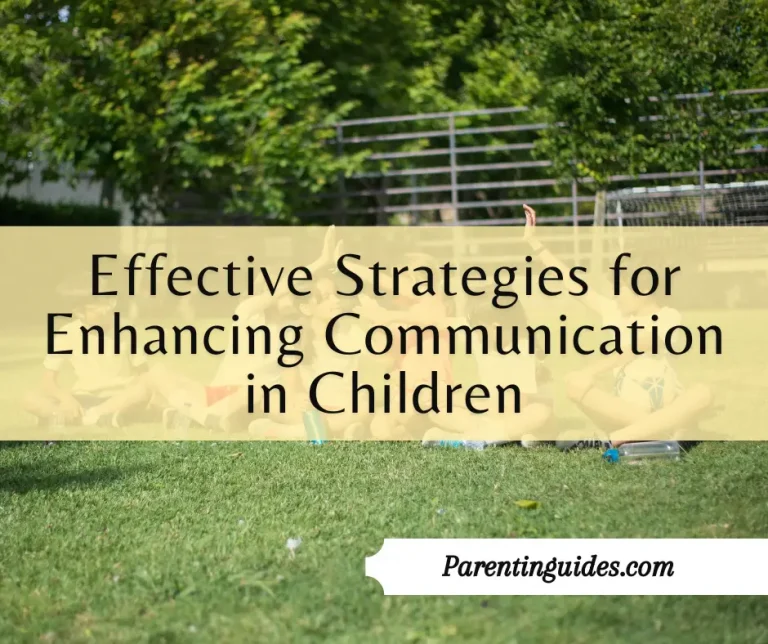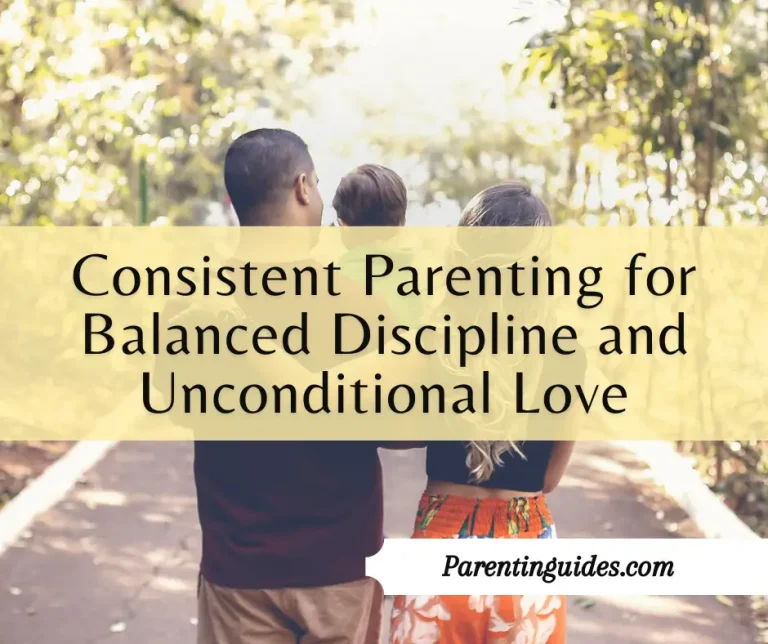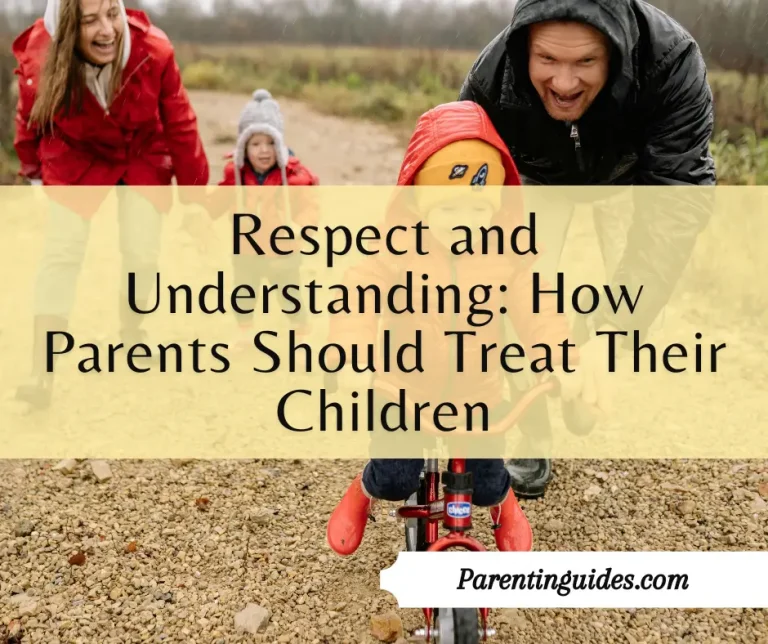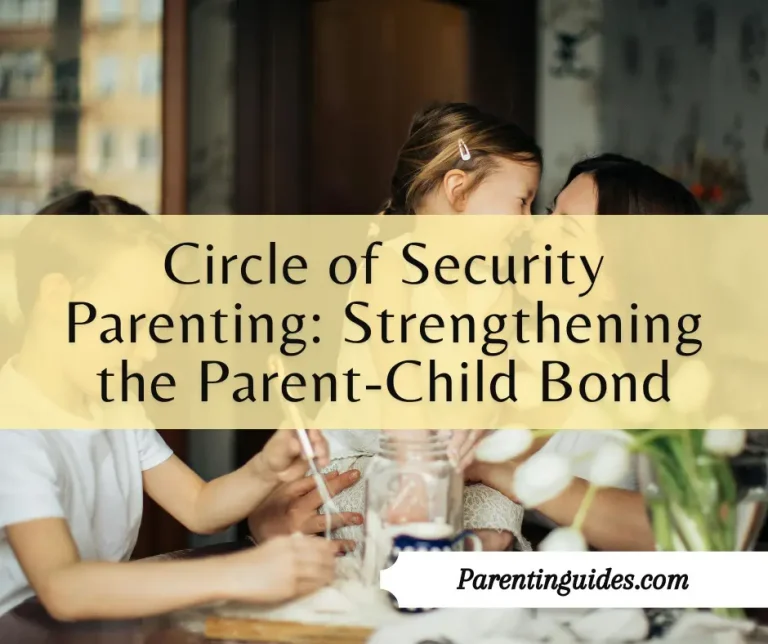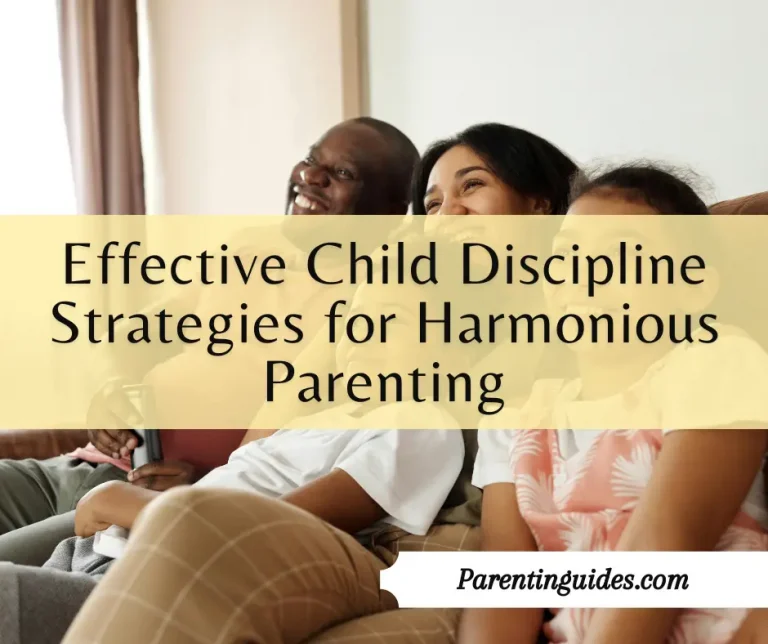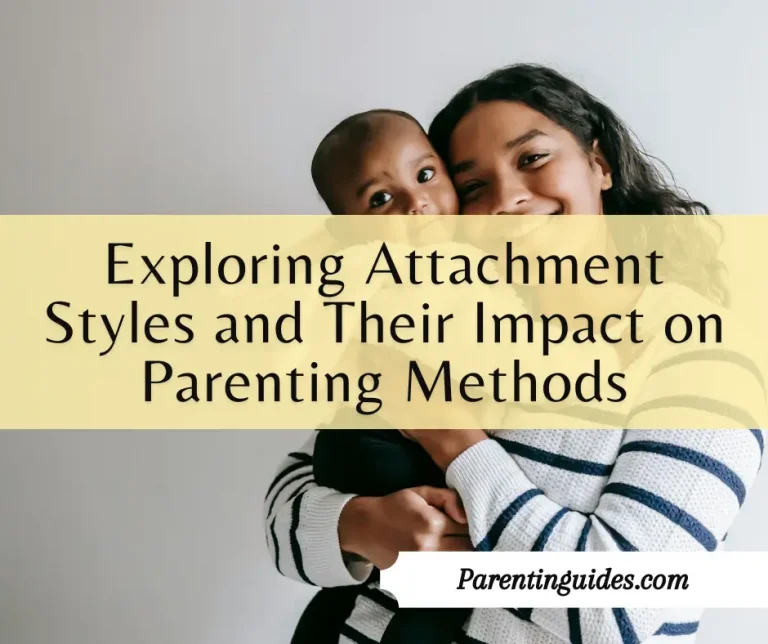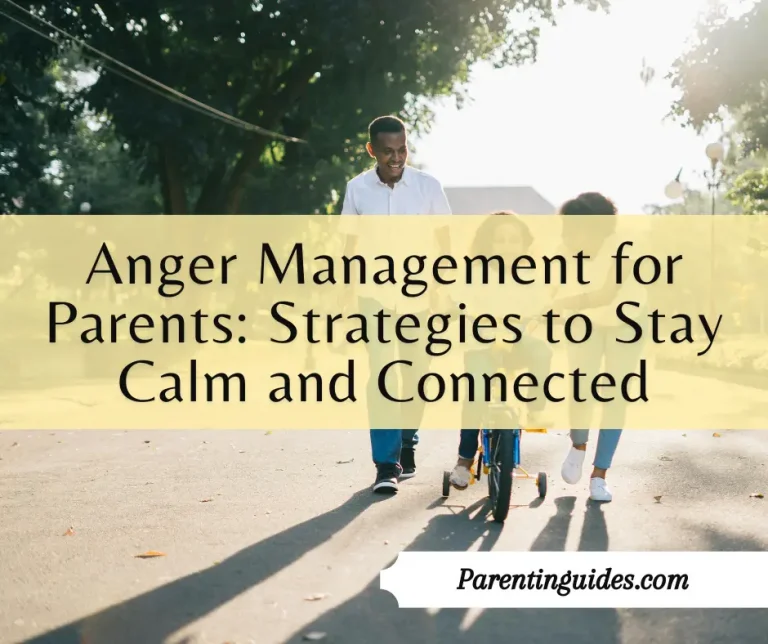As a mother, understanding the parents’ attitudes towards their children helps to shape our children’s future. Each interaction, whether it’s a warm hug or a firm directive, molds their emotional and intellectual growth. In this article, I’ll share insights from both my and my husband’s journey in parenting, aiming to unravel the complexities of parental attitudes and their profound impacts.
Our discussion will cover several key areas. We’ll start with a look at how parents’ attitudes towards their children have evolved across different cultures and historical periods. Next, we’ll delve into the psychological factors that influence how parents perceive and react to their children, followed by an exploration of how socioeconomic conditions shape our expectations and interactions.
The core of our discussion will focus on how these parents’ attitudes towards their children affect their children’s emotional, cognitive, and behavioural development. We will explore effective parenting practices that promote healthy growth, such as consistent support and open communication. Additionally, we’ll tackle common challenges modern parents face, from managing behavioural issues to balancing digital exposure.
By the end of this article, you will have a clearer understanding of the significant role your parenting style plays in your child’s development. Our goal is to inspire and equip you to refine your parenting approach, ensuring that it supports your child’s growth in the most nurturing way possible. Join us as we navigate this crucial aspect of parenting together by mentioning parents’ attitudes towards their children.
Foundations of Parental Attitudes
Historical Perspective
Through our journey as parents, my husband and I have observed how deeply historical and cultural contexts influence parenting styles. Here, parents’ attitudes towards their children have an amazing historical perspective. Traditionally, parenting often emphasized strict discipline, with a strong focus on obedience and manners. This approach reflected the societal norms of the time, where hierarchy and order were paramount.
· Evolution over Time: As societies progressed, the approach to parenting began to soften. The mid-20th century introduced concepts like attachment theory, which emphasized the emotional bond between parents and children.
· Cultural Shifts: Different cultures have also seen shifts; for example, Western societies have moved towards more child-centric parenting, focusing on individuality and emotional well-being, whereas many Eastern cultures maintain a balance between discipline and nurturance, heavily influenced by values of respect and communal harmony.
These historical and cultural shifts highlight the dynamic nature of parenting, which evolves as societal values and norms progress. Understanding these parents’ attitudes towards their children can help parents like us adopt practices that are sensitive to the times and our cultural milieu, fostering better parent-child relationships.
Psychological Factors
Parenting is as much about the parent’s psychological makeup as it is about the child’s needs. Psychological factors deeply influence how parents perceive and react to their children, affecting everything from daily interactions to long-term parenting strategies. So, here are some facts to be considered in parents’ attitudes towards their children when parenting.
· Emotional Response: How parents manage their own emotions plays a critical role in shaping their reactions towards their children. For instance, a parent who is aware of their triggers and stressors may adopt more mindful parenting techniques.
· Influence of Background: Our psychological backgrounds, how we were parented, our educational experiences, and our understanding of child development. My husband and I often reflect on our childhoods to understand why we react in certain ways and how we might do better.
Recognizing these psychological factors is essential. The reason is that they directly influence the emotional and developmental support we provide our children. It encourages ongoing self-reflection and adaptation in our parenting approaches.
Socio-economic Factors
The impact of socioeconomic factors on parenting cannot be understated. Economic conditions and social status shape not just the opportunities children have. But, parents’ attitudes towards their children also adopt towards their upbringing.
· Access to Resources: Financial stability allows parents to provide better educational and recreational opportunities, which are crucial for a child’s development. Conversely, financial stress can limit these opportunities, affecting a child’s growth and a parent’s stress levels.
· Social Expectations: Social status also influences parenting styles. In higher socioeconomic groups, there might be higher expectations for children’s achievement and behaviour, while in lower groups, the focus might often be on resilience and practical skills.
My husband and I have experienced how our economic situation has influenced our expectations and attitudes towards our children. During times of financial hardship, we’ve had to adjust our expectations and find innovative ways to support our children’s needs without ample resources.
Understanding these socio-economic influences helps parents navigate the challenges they face and tailor their parenting to foster the most supportive environment for their children. It simply allows parents to focus more on nurturing and less on surviving in parents’ attitudes towards their children.

Impact of Parents’ Attitudes Towards Their Children on Child Development
Emotional Development
In our parenting journey, my husband and I have discovered just how vital warmth, affection, and responsiveness are in nurturing our children’s emotional growth. These expressions of love and support are fundamental to building a secure emotional environment for our kids.
· Secure Attachment: When children feel consistently loved and understood, they develop a secure attachment. This security fosters confidence and healthy self-esteem as they grow.
· Emotional Resilience: Responsive parenting helps children learn to manage their emotions effectively. They become better equipped to handle stress and adversity.
We’ve seen first-hand how our emotional availability and understanding have helped our children express themselves more openly and confidently. It’s clear that our emotional involvement regarding parents’ attitudes towards their children directly impacts their emotional and psychological health.
Cognitive Development
Parental expectations and engagement play critical roles in influencing a child’s cognitive development and academic achievements. This is something my husband and I prioritize in our home.
· Stimulating Interactions: Engaging children in conversations, reading to them, and encouraging questions to stimulate cognitive growth. These activities expose them to new vocabulary and ideas, enhancing their learning capabilities.
· Setting Expectations: Positive expectations motivate children to strive and achieve. We’ve found that setting realistic yet challenging goals for our children pushes them to extend their limits in a supportive environment.
Our engagement in their educational activities, whether it’s homework help or discussing what they learned in school. Here, we see how our active participation boosts their curiosity and desire to learn.
Behavioural Outcomes
The impact of parents’ attitudes towards child behaviour is profound. Both positive and negative attitudes shape how children interact with the world around them.
· Positive Reinforcement: When it comes to parents’ attitudes towards their children, positive attitudes, such as praise and encouragement, foster good behaviour. When children are acknowledged for their efforts, they are more likely to repeat those behaviours.
· Handling Misbehaviour: Conversely, parents’ attitudes towards their children can be negative attitudes or inconsistent discipline too. They can lead to behavioural issues. We strive to address misbehaviour with clear, consistent consequences, which helps our children learn acceptable behaviours in a supportive manner.
Through our experiences, my husband and I have seen how essential parents’ attitudes towards their children and behaviours as parents are to our children’s development. By fostering an environment of love, consistent support, and positive expectations, we help shape not only their current behaviour but also their future potential.
Positive Parenting Practices in Parents’ Attitudes Towards Their Children
Encouragement and Support
As parents, my husband and I believe deeply in the power of encouragement and support in parents’ attitudes towards their children. Fostering our children’s independence and self-esteem starts with believing in their capabilities and showing them they are valued
· Building Independence: By encouraging our kids to take on new challenges and make decisions, we help them develop a strong sense of autonomy. Whether it’s choosing their clothes or deciding on their extracurricular activities, these choices build confidence.
· Supportive Environment: Supporting our children doesn’t mean just cheering from the sidelines. It means actively listening to their concerns and celebrating their successes. This support reassures them that they are loved and valued, which is crucial for their self-esteem.
We’ve seen how this approach has allowed our children to feel secure in trying new things and expressing themselves. They grow more confident and independent each day, knowing they have a safe space at home.
Consistent and Fair Discipline
Discipline is a critical aspect of parenting. Here, consistency and fairness are its pillars. My husband and I strive to maintain these principles to create a stable and supportive environment for our children.
· Consistency: We ensure that our rules and the consequences for breaking them are clear and consistent. This consistency helps our children understand what is expected of them and what the boundaries are.
· Fairness: Being fair means adapting our responses to fit the situation and the child’s understanding. It’s about being just, not just strict. When our children understand that discipline is meted out fairly, they learn to trust our judgment and feel treated with respect.
This approach to discipline has helped us build a household where rules are understood and followed. So, our children feel secure in the knowledge that they are being raised in a just environment. Therefore, when it comes to parents’ attitudes towards their children, it is a must to consider these facts too.
Open Communication
Open communication is the cornerstone of our family’s relationship. My husband and I prioritize keeping lines of communication open, ensuring that our children feel comfortable sharing their thoughts and feelings.
· Building Trust: Regular, open conversations foster a deep sense of trust. Our children know they can come to us with any problem, big or small, and we will listen and help.
· Understanding Each Other: Through open communication, we gain insights into our children’s needs, fears, and aspirations. This understanding helps us guide and support them more effectively.
By implementing these positive parenting practices, my husband and I aim to provide a nurturing environment that promotes healthy development. Encouragement and support, consistent and fair discipline, and open communication are key practices that guide our parenting approach. Moreover, these parents’ attitudes towards their children with positive practices help our children grow into confident and capable individuals.

Common Challenges and Solutions in Parents’ Attitudes Towards Their Children
Dealing with Behavioural Issues
In parenting, dealing with behavioural issues is something my husband and I encounter regularly. It’s essential to handle these challenges effectively to promote a healthy development environment for our children.
· Consistent Consequences: We’ve found that maintaining consistency in consequences for certain behaviours helps our children understand what is acceptable and what is not. This consistency prevents mixed messages that could confuse them.
· Positive Reinforcement: Encouraging good behaviour with positive reinforcement is another effective strategy. Recognizing and rewarding good actions tends to increase the likelihood of these behaviours recurring.
· Communication and Understanding: Sometimes, behavioural issues stem from underlying frustrations or difficulties. Openly discussing these feelings with our children helps us understand the root causes and address them directly.
Using these strategies helps us manage and mitigate behavioural issues. It teaches our children valuable life lessons about actions and consequences under parents’ attitudes towards their children.
Navigating Modern Challenges in Parents’ Attitudes Towards Their Children
Modern parenting comes with its own set of challenges. They are like digital exposure, peer pressure, and educational stress. Here, my husband and I navigate through continuous learning and adaptation.
· Digital Exposure: We set clear guidelines and usage times for digital devices to balance screen time with other activities. It’s also important for us to educate our children about online safety and the importance of privacy.
· Peer Pressure: Encouraging open communication about their social interactions helps us guide our children through peer pressure. We strive to build their self-esteem so that they feel confident in making decisions that are right for them.
· Educational Stress: We support our children by providing a structured yet flexible learning environment at home, discussing school pressures openly, and teaching them time management and study skills.
By addressing these modern challenges head-on, we can guide our children through the complexities of today’s world. It helps them grow into well-rounded individuals under the parents’ attitude towards their child.
Balancing Expectations and Reality
Balancing the expectations we have for our children with their own interests and capabilities is a delicate aspect of parenting that my husband and I focus on.
· Realistic Goals: We try to set realistic expectations based on our children’s abilities and interests. This involves understanding their strengths and limitations and not pushing them to conform to an ideal that doesn’t fit their personal journey.
· Supporting Individual Interests: Encouraging our children to pursue their passions shows that we support their individuality. This support is crucial for their self-esteem and happiness.
· Open Discussions: Regular discussions about goals and aspirations help keep everyone on the same page. These conversations are essential for ensuring that our children feel valued and understood, not just pressured to meet expectations.
This balanced approach helps us nurture our children’s growth in a way that respects their unique personalities and abilities. It is also still guiding them towards achieving their full potential.
By employing these strategies, my husband and I aim to tackle the common issues that arise in parenting. So, parents’ attitudes towards their children, ensure our children receive the guidance they need to thrive in today’s complex world.
Building a Supportive Community with Parents’ Attitudes Towards Their Children
Role of Extended Family and Friends
When it comes to parents’ attitudes towards their children, it is very important to build a supportive community. In our journey as parents, my husband and I have often leaned on the support of our extended family and friends. This network has proven invaluable in our children’s upbringing, offering diverse perspectives and emotional support that enrich their lives and ours.
· Emotional and Practical Support: Extended family members like grandparents, aunts, and uncles offer a layer of love and care that complements our parenting. They provide practical help, such as babysitting, which gives us much-needed breaks. Moreover, they bring a sense of continuity and heritage to our children’s lives.
· Learning Through Diversity: Friends and wider social networks introduce our children to a broader range of experiences and cultures, which helps them develop a more inclusive worldview. These relationships teach them about the importance of friendship, trust, and empathy.
· Role Models: Both family and friends act as role models, showing various ways of living and solving problems. Observing these interactions helps our children learn how to navigate social situations and build their own relationships.
The support from this community not only lightens our load as parents. It also plays a crucial role in shaping well-rounded, socially adept children. As a result, these parents’ attitudes towards their children underscores the old adage that it truly takes a village to raise a child.
Accessing Professional Help
There are times in parenting when the challenges go beyond what can be managed at home or with the help of family and friends. Recognizing when to seek professional help has been crucial for us in managing our attitudes and expectations as parents.
· Recognizing the Need: The first step is acknowledging that some situations require outside expertise. They are like persistent behavioural issues, emotional distress in children, or our own feelings of overwhelm. My husband and I have learned to see these signs not as failures but as opportunities to seek help for the betterment of our family.
· Types of Professional Help: We have various options depending on our needs. For educational concerns, we might consult with educational psychologists or tutors. For behavioural or emotional issues, child psychologists or family therapists can offer guidance. Even parenting coaches can offer advice on managing daily challenges and improving our parenting skills.
· Engaging with Professionals: When we decide to seek help, we approach it with openness and readiness to learn. It’s important to be transparent about the challenges we face. This openness ensures that the professionals can provide the most effective support possible.
Accessing professional help has allowed us to handle complex issues more effectively. It ensures that our parenting is guided not just by love and good intentions but also by informed, expert advice. This approach has been fundamental in maintaining the well-being of our family. So, parents’ attitudes towards their children, support our children’s development in the most positive ways.
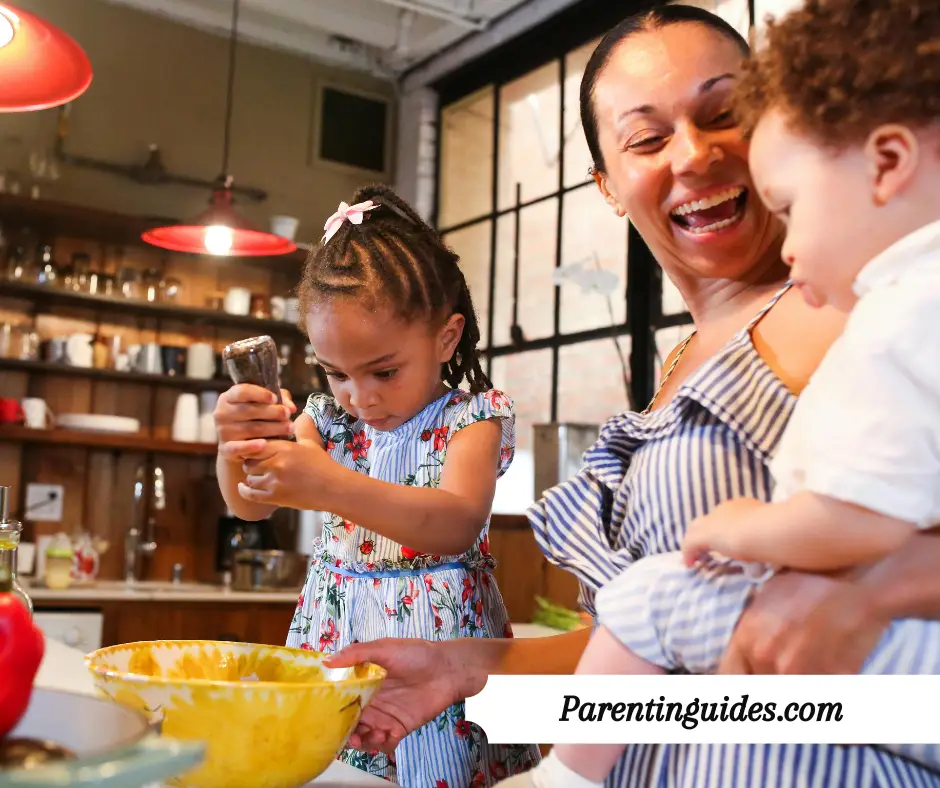
Conclusion
In wrapping up this discussion on the profound impact of parents’ attitudes towards their children, it’s clear how vital our roles are in shaping their futures. My husband and I have shared our experiences and insights. Here, we are hoping to illuminate the various factors that influence parenting and, in turn, child development.
Through a historical lens, parents’ attitudes towards their children has been has helped the ancient parents to take care of their children well. We’ve seen how parenting styles have evolved, moving from strict discipline to more empathetic and child-centric approaches. This evolution reflects broader cultural and societal shifts, reminding us of the importance of adapting our parenting to the times while still preserving valuable traditions.
On the psychological front, we’ve delved into how our own emotions and experiences shape our interactions with our children. Understanding our psychological makeup is crucial for responsive and mindful parenting. It helps us support our children’s emotional needs more effectively, fostering an environment where they can thrive psychologically and emotionally.
when it comes to parents’ attitudes towards their children, socio-economically is very important. Here, our discussion highlighted how our financial circumstances and societal positions influence the opportunities we can provide for our children, as well as the expectations we might place on them. Moreover, the cornerstone of our exploration has been the undeniable link between parental attitudes and children’s emotional, cognitive, and behavioural outcomes. By embracing positive parenting practices such as consistent support, fair discipline, and open communication, we greatly enhance our children’s potential for success.
As we conclude, I encourage every parent reading this to reflect on their attitudes and approaches. The journey of parenting is one of continual learning and adaptation. Let’s commit to being the best parents we can be, nurturing our children’s growth with love, understanding, and respect. Together, we can consider the parents’ attitudes towards their children. Then, we can forge a future for our children that is as bright as our hopes for them. Join us in this vital endeavour to positively shape the next generation. Finally, it is essential to remember that parents’ attitudes towards their children directly affect the lives of their beloved kids.

